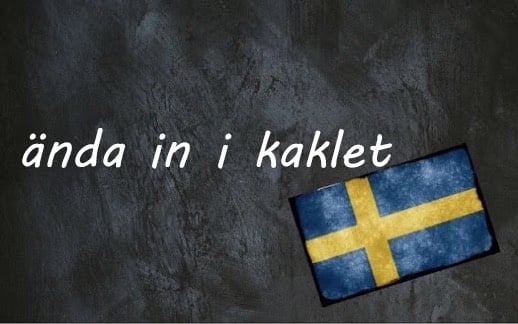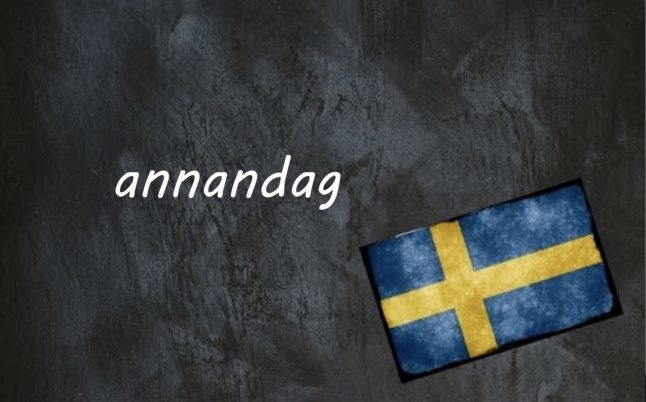Ända in i kaklet literally means ‘all the way into the tiling’, but in daily parlance it means to ‘keep fighting all the way until the end’.
Ända in i means ‘all the way into’, and kaklet, of course, is ‘the tiling’. Ända can also mean a’ behind’, as in someone’s ‘derriere’. This is because it literally means ‘an end’, as in either end of an object. A less common usage is ‘to finish’, as in ‘to finish something or someone’.
Here, of course, it means something like ‘all the way’, drawing from the meaning ‘along the entire route to a certain end point (or from a certain starting point)’.
The expression ända in i kaklet was born in the world of competitive swimming. You can almost imagine a coach at a competition screaming at their swimmer to keep going Ända in i kaklet! That is, keep swimming until you hit the tiling of the pool, or in other words, until the race is over.
As you might know, swimming is quite popular in Sweden. The country has had a disproportionate number of world champions for such a small country. And it is not hard to see how a popular expression in the sport would be carried home by fans to the wider public.
The expression gained popularity broadly applied to any competition or struggle, where it simply means that you keep fighting until you win, or until the bitter end. During election years you might hear politicians use it, for instance, often referring to a tight race that they are gonna fight ända in i kaklet.
You might want to use the expression for any number of occasions, perhaps going out to town you might say to your frends, Nu kör vi ända in i kaklet! Which would mean ‘Here we go, all the way until the end!’’
Anything that requires an effort (or a symbolic effort, like partying) is usually a good fit. If there’s a competition, even better. Good luck!
Example sentences:
Dom kör verkligen ända in i kaklet!
They’re really going all the way till the end!
Vi kommer att kämpa ända in i kaklet.
We are going to fight all the way till the end
Villa, Volvo, Vovve: The Local’s Word Guide to Swedish Life, written by The Local’s journalists, is now available to order. Head to lysforlag.com/vvv to read more about it. It is also possible to buy your copy from Amazon US, Amazon UK, Bokus or Adlibris.



 Please whitelist us to continue reading.
Please whitelist us to continue reading.
Member comments